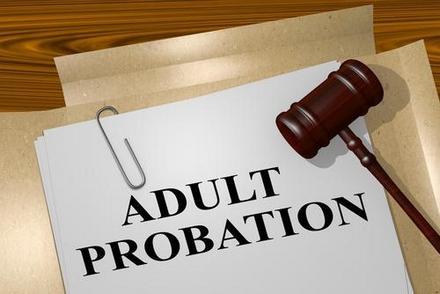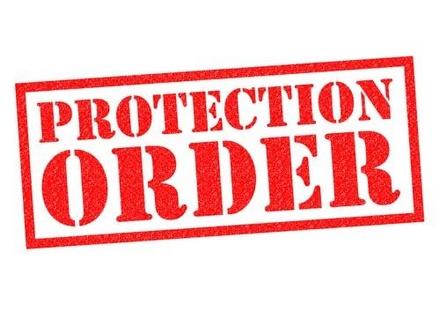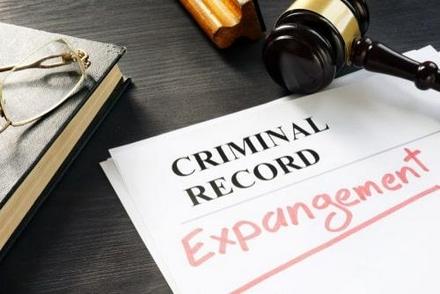TELEPHONES ANSWERED 24 HOURS A DAY
Recent Blog Posts
Prison or Probation in 2017?
 Effective January 1, 2017, judges in Illinois now must explain, on the record, why they handed down a prison sentence for a crime that also carries a punishment of probation when imposing sentences on two classifications of felonies. This change in Illinois law now forces judges to clarify reasons when they could previously have been silent. It also makes judges explain why none of the mitigating factors swayed he or she from imposing a prison sentence instead of a less restrictive sentence.
Effective January 1, 2017, judges in Illinois now must explain, on the record, why they handed down a prison sentence for a crime that also carries a punishment of probation when imposing sentences on two classifications of felonies. This change in Illinois law now forces judges to clarify reasons when they could previously have been silent. It also makes judges explain why none of the mitigating factors swayed he or she from imposing a prison sentence instead of a less restrictive sentence.
The requirement of this new explanation at sentencing was aimed at encouraging judges across Illinois to become less reliant on imprisonment and more reliant on diversionary programs that may be more suitable for nonviolent offenders. Illinois law allows a judge’s discretion when imposing criminal sentences for various crimes. A judge may consider a wide array of factors when imposing a sentence, such as:
When a Defendant Dies
 Unfortunately, we never know what life holds in store. Maybe life is 100 years long, and in other cases, the length of life is not as long as we hope. When life ends prematurely, we are often left to pick up the pieces. What happens if the decedent is part of a criminal trial? Does the case stop? Do prosecutors continue to drag the name through the mud during a trial? Who stands to represent the decedent? Although uncommon, defendants have passed away during a trial before, and it is useful to know what the procedure is in these instances.
Unfortunately, we never know what life holds in store. Maybe life is 100 years long, and in other cases, the length of life is not as long as we hope. When life ends prematurely, we are often left to pick up the pieces. What happens if the decedent is part of a criminal trial? Does the case stop? Do prosecutors continue to drag the name through the mud during a trial? Who stands to represent the decedent? Although uncommon, defendants have passed away during a trial before, and it is useful to know what the procedure is in these instances.
With No Verdict
A criminal case needs someone to prosecute; otherwise, there is no case. Therefore, in the event of the death of the defendant during a trial or an investigation, the case drops against the recently deceased, if they are the sole defendant. The person must be alive to argue their side of the case. However, this is not the way anyone would like a case to end.
Internet Crime Center May Be Targeting Wrong Individuals
 Internet crime is beyond a doubt troublesome for not only the ordinary individual but also impacts national security. While the majority of citizens utilize the world wide web to complete daily activities, such as shopping, applying for jobs, listening to music or ordering tickets to a show, there is a portion of the population using the information for darker, or even criminal purposes. The Federal Bureau of Investigations (FBI) created the Internet Crime Complaint Center (IC3) to offer a safe avenue for the public to report internet crimes. However, when the public can initiate an investigation into other individuals, problems may occur.
Internet crime is beyond a doubt troublesome for not only the ordinary individual but also impacts national security. While the majority of citizens utilize the world wide web to complete daily activities, such as shopping, applying for jobs, listening to music or ordering tickets to a show, there is a portion of the population using the information for darker, or even criminal purposes. The Federal Bureau of Investigations (FBI) created the Internet Crime Complaint Center (IC3) to offer a safe avenue for the public to report internet crimes. However, when the public can initiate an investigation into other individuals, problems may occur.
What happens with the information?
The Internet Crime Complaint Center (IC3) has grown from the original entity of the Internet Fraud Center. The name changed due to a number of allegations flooding in, ranging anywhere between hacking to matters involving intellectual property rights. Just about anyone can make a complaint against someone else within the United States, regardless of their citizenship status. No evidentiary support is necessary at the time of the report, either, which means anyone with a personal vendetta can stir up trouble. After initiating a complaint, stopping the process is not an option, even if the initiator shows remorse and admits it is false. The IC3 analyzes the information provided then transfers it to the appropriate department who then proceed with the investigation. Agencies responsible for the case include:
Bank Fraud Explained
 Accusations of bank fraud elicit ideations of a masked individual demanding cash from a banking institution. However, although the accusations imply the illegal procurement of money, one is not the same as the other. Bank robbery is a blatant, public act in which an individual immediately announces intent to obtain money illegally. Bank fraud is the secretive version of taking money, often with the intent of getting away or perhaps never being discovered. A wide variety of actions results in charges of bank fraud. Federal charges such as bank fraud hold harsh criminal punishments if convicted.
Accusations of bank fraud elicit ideations of a masked individual demanding cash from a banking institution. However, although the accusations imply the illegal procurement of money, one is not the same as the other. Bank robbery is a blatant, public act in which an individual immediately announces intent to obtain money illegally. Bank fraud is the secretive version of taking money, often with the intent of getting away or perhaps never being discovered. A wide variety of actions results in charges of bank fraud. Federal charges such as bank fraud hold harsh criminal punishments if convicted.
Type of Bank Fraud
There is a wide variety of methods used to defraud a bank of their money. A few are more common than others due to the ease in which they occur. The more complex the behavior is, the more premeditation is necessary and therefore the harsher the penalty if found guilty. A few bank fraud practices include:
Mortgage Fraud Defined
 Prosecuted as a federal crime, mortgage fraud is often a very complicated criminal act that can create ongoing, long-term problems for both its victims and offenders over time. The FBI defines this crime under two main categories: Fraud for property, and fraud for profit. Both forms of mortgage fraud involve some kind of conscious, deliberate misstatement, misrepresentation, or omission on behalf of the individual applying for a home loan, or on behalf of the loan officer, underwriter, or lender who funds or insures the loan.
Prosecuted as a federal crime, mortgage fraud is often a very complicated criminal act that can create ongoing, long-term problems for both its victims and offenders over time. The FBI defines this crime under two main categories: Fraud for property, and fraud for profit. Both forms of mortgage fraud involve some kind of conscious, deliberate misstatement, misrepresentation, or omission on behalf of the individual applying for a home loan, or on behalf of the loan officer, underwriter, or lender who funds or insures the loan.
Common Tactics
While the nature of the forms of these offenses is different, each with different intent, they share one glaring similarity: Both types of mortgage fraud are essentially theft crimes, committed by deception in order to acquire funds. Property fraud, which is committed by individuals applying for a home or property loan, typically involves one loan with the intent to pay the debt back, but the means by which the loan is acquired is through the use of dishonest, illegal documented statements. The same goes for profit fraud, only this kind usually entails multiple loans and various schemes to obtain the funds, which the offender usually has no intention to pay back. Common tactics used to commit mortgage fraud include the following:
Federal Money Laundering Allegations Defined
 Chances are, if you have been accused of a money laundering crime, you were already aware of the seriousness of the crime before the allegations were filed against you, as it is an activity that has existed for many years. It has been heavily prosecuted, with ramifications that are far-reaching, wielding power to impact countless individuals and organizations, depending on the severity of the offense. This is because money laundering is not a simple, petty crime; it consists of many complex layers and often has a chain-reaction effect that leaves trails of damages.
Chances are, if you have been accused of a money laundering crime, you were already aware of the seriousness of the crime before the allegations were filed against you, as it is an activity that has existed for many years. It has been heavily prosecuted, with ramifications that are far-reaching, wielding power to impact countless individuals and organizations, depending on the severity of the offense. This is because money laundering is not a simple, petty crime; it consists of many complex layers and often has a chain-reaction effect that leaves trails of damages.
If you are being accused of laundering activity, here are some steps to take:
Determine Whether Your Activity Is Considered Money Laundering
Laundering is categorized as a federal crime, meaning it is an illegal act according to U.S. legislation, prosecuted in federal courts. Money laundering acts range from health care fraud and human trafficking to narcotics trafficking and international and domestic public corruption. The FBI describes laundering as a process by which criminals conceal their earnings by somehow making the proceeds appear to come from a legal, legitimate source. This allows them to hide and accumulate large sums of money, giving them the ability to dodge prosecution and evade taxes. In short, they utilize these various activities to both generate and conceal the money they make.
Forms of Identity Theft that Result in Serious Criminal Charges
 Like all kinds of fraud, identity theft crimes are costly for everyone involved. Some victims of identity theft may end up spending thousands of dollars and countless hours - often over the course of years - to restore their name and remove the damages that have tarnished their record. Offenders face serious criminal charges for such crimes, including prison time and significant monetary penalties, all of which have long-term consequences to the offender’s record and reputation.
Like all kinds of fraud, identity theft crimes are costly for everyone involved. Some victims of identity theft may end up spending thousands of dollars and countless hours - often over the course of years - to restore their name and remove the damages that have tarnished their record. Offenders face serious criminal charges for such crimes, including prison time and significant monetary penalties, all of which have long-term consequences to the offender’s record and reputation.
Common ID Thefts
There are multiple forms of federal identity theft crimes, but the following three types of ID theft are especially common:
Medical
With the overwhelming, ever-growing costs of health care, it is not surprising that medical fraud is a common practice among identity thieves. Medical ID theft is used to obtain medical services and is committed in various ways, including stealing health insurance membership numbers, stealing medicare IDs, or issuing fraudulent billing to an individual’s health insurance provider in order to reap medical and/or financial benefits.
Order of Protection Restrictions
 Behaviors that are considered by law to be acts of domestic violence can range greatly, encompassing much more than physical acts of violence. Cutting off or taking complete control over a partner’s finances, belittling them by calling them names, or diminishing their self-worth through emotional manipulation are all other forms of abuse according to the law. Any type of domestic abuse allegation is a serious matter and can severely alter the offender’s life over the long term.
Behaviors that are considered by law to be acts of domestic violence can range greatly, encompassing much more than physical acts of violence. Cutting off or taking complete control over a partner’s finances, belittling them by calling them names, or diminishing their self-worth through emotional manipulation are all other forms of abuse according to the law. Any type of domestic abuse allegation is a serious matter and can severely alter the offender’s life over the long term.
One step many victims take to combat the abuse they experience is to pursue an order of protection against the offender, which significantly restricts the offender in terms of contact. In short, an order of protection serves to help keep an abusive person away from a victim. It is a formal court order that places various limits on the offender in the state of Illinois in the following ways:
1. Bars the abuser from sharing a residence with the victim.
Do You Qualify for Criminal Record Expungement?
 The prospect of having a criminal record expunged is an appealing one. For new offenders who have an otherwise spotless record, having anything blemish that record can be discouraging, especially when the potential long-term effects are considered. Having a criminal record can impact everything from your reputation in your community and workplace to your ability to acquire or maintain a place of employment. If you desire to have your record expunged, you first need to see what the law says about the process and whether or not you even qualify.
The prospect of having a criminal record expunged is an appealing one. For new offenders who have an otherwise spotless record, having anything blemish that record can be discouraging, especially when the potential long-term effects are considered. Having a criminal record can impact everything from your reputation in your community and workplace to your ability to acquire or maintain a place of employment. If you desire to have your record expunged, you first need to see what the law says about the process and whether or not you even qualify.
The Criminal Identification Act Standards
The law determines who may be eligible for the expungement process in Section 5.2 of the Criminal Identification Act. Unless you are an honorably discharged veteran convicted of specific Class 3 or Class 4 felonies, you are only eligible to have your record expunged if you have never before been convicted of a criminal offense or municipal ordinance violation. Under Illinois law, your record cannot be expunged if it is federal or out-of-state. Other factors that disqualify your record from being eligible for expungement include:
Four Criminal Expungement Myths Exposed
 For individuals in the state of Illinois who have never been convicted of a crime, having a record expunged has the power to bring an overwhelming amount of relief and to open up a world of possibilities for the future. Criminal expungement essentially “erases” your criminal record, which can help eliminate the fear of missing out on future employment opportunities or possibly experiencing negative effects on any current employment standing. The benefits of expungement extend even further when it comes to your overall reputation. A clean record can give you peace of mind, a fresh slate, and the confidence you need to move forward after your arrest.
For individuals in the state of Illinois who have never been convicted of a crime, having a record expunged has the power to bring an overwhelming amount of relief and to open up a world of possibilities for the future. Criminal expungement essentially “erases” your criminal record, which can help eliminate the fear of missing out on future employment opportunities or possibly experiencing negative effects on any current employment standing. The benefits of expungement extend even further when it comes to your overall reputation. A clean record can give you peace of mind, a fresh slate, and the confidence you need to move forward after your arrest.
Truths and Common Misconceptions
As beneficial as criminal expungement can be, there are many misunderstandings about the process and what it means for the offender once everything is all said and done. The following facts and misconceptions commonly cause confusion for first-time offenders approaching the topic of expungement:




